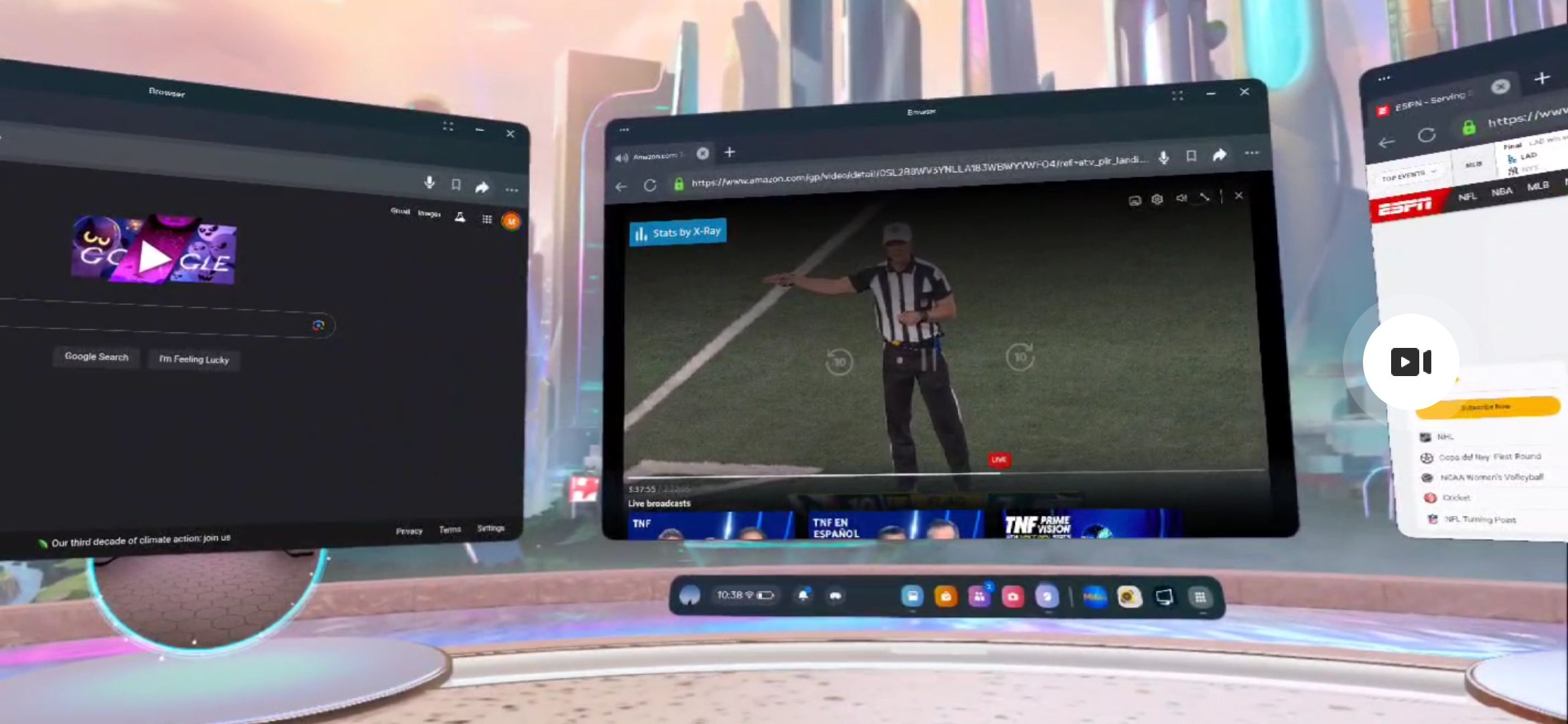Tech News
How My Quest 3 Replaced All My Screens
Key Takeaways
My ideal solo evening involves casual gaming on my TV, streaming a sporting event on my iPad, with my laptop open to follow fantasy teams or getting real-time games and player updates from social media, and my phone won't be too far away either. However, my Quest 3 can replace all those screens.
Choose a Base of Operations
Watching football is still a couch activity on the Quest. You can't take your screens with you, and you shouldn't. Passthrough mode allows the user to place virtual screens in their real surroundings instead of a virtual room. However, the mixed reality view can be blurry or grainy. This effect gets worse when moving. Furthermore, once the virtual screens are placed, they don't move with the user. This makes sense both to prevent motion sickness and to prevent subtle movements every time the headset moves.
One of my favorite aspects of screen time in virtual reality is that the audio stays with me, even if I walk away from the screens for a moment. I'm not an audiophile, but I think the Quest audio is perfectly fine. It's not "tinny" or electronic sounding like a lot of smartphone audio. However, many users prefer to pair their own earbuds rather than use Quest audio.
Another audio bonus to the Quest is that as long as I open the game first, that audio will continue over any other app I open on the Quest. If I opt into an immersive gaming experience I'll lose my browser windows, but I'll still hear both the football game and the immersive game audio. I prefer to adjust the game audio to remove music and play game sounds at a lower volume.
For my screenshots, the NFL game happened to be streaming on Prime, but on game day I use the multi-view feature on YoutubeTV. This is a four-way split screen with an option to receive audio from any one of them. Unfortunately, neither Prime nor YoutubeTV has a standalone app on Meta. However, they can both be accessed without from the web browser application.
Picture quality can be subjective, but I feel the picture on Prime is adequate to excellent and the picture on YoutubeTV is impressively sharp. I have noticed that the picture on YoutubeTV is blocked when casting from VR to another device. It just shows an empty browser window, but the game on Prime came through just fine. College football or any level of baseball also works particularly well this way. NFL games are all over the place this year when it comes to streaming services, but I have yet to encounter a problem.
If you'd like to save yourself some frustration, restart the headset if there is ever a lag or delay with the Meta voice-to-text. I had problems when I first set it up, and then only one time since. I think if I'd restarted as soon as I thrice authorized voice recording permissions it would have worked sooner.
One of the downsides to a lighter and cheaper headset versus a premium headset like the Quest Pro or Apple Vision Pro is there is a more obvious limit to processing power. Allowing permissions before entering passthrough mode or beginning the stream can make things go smoother. However, once voice-to-text was set up, it worked flawlessly for me.
Enjoy It for as Long as You Can
Limited battery life can be extended if you use the Quest while still connected to the charger, but it will still consume power faster than the charger can replace it. Multitasking uses more battery, but watching in an all-virtual environment uses less energy than passthrough mode.
There is also battery saver mode and extended battery mode, but they each trade quality (brightness, refresh rate, etc) to save battery time. Since I have alternative screens and typically don't spend more than 60 to 90 minutes in VR anyway, I prefer to use the headset at peak performance and sacrifice the battery instead.
When you subscribe to the blog, we will send you an e-mail when there are new updates on the site so you wouldn't miss them.




Comments